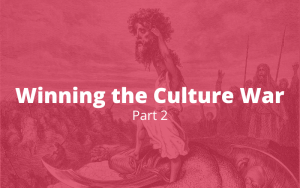As an academy, we think it’s so critical to partner together well, as we work together to spread a love for what lasts to the next generation. “Love what lasts” is our theme for this year. I’d like to address that broader idea with one of our key teaching methods in mind, the teaching tool of narration.
During our teacher bootcamp we focused on this central teaching method at Coram Deo Academy. All of our full time faculty performed mock Narration Lessons for one another and we gave each other feedback. It was so much fun and so helpful to focus on the craft of teaching together. But why do we do this teaching method of narration at CDA? And what does it have to do with our theme of Love What Lasts?
First, the theme of Love What Lasts reminds us as parents and teachers to prioritize the permanent themes. It’s easy to get distracted as a parent and a teacher. We can tend to be responsive to the needs and wants and desires of children, but not pause to consider how we can shepherd them to love the things that are truly important. This is most obvious in our faith. God is the same, yesterday and today and forever. He never grows old or weary. He will remain when all other objects of desire have passed away, have abandoned us, been broken or forgotten. God lasts and will last. His Word is not like the flowers of the field, which today are here and tomorrow are thrown into the oven. The grass withers, the flowers fade, but our God remains forever. Our lives, too, are like a mist and vapor that appears for a while and then vanishes. So we should not seek the things that the Gentiles do, riches that moth and rust destroy and thieves break in and steal, but we should seek the Kingdom and God’s righteousness, which will not only last, but grow ever brighter until the noonday sun. It’s easy to be distracted, but instead we want to educate our children in a way that points them to eternal realities. That’s what Coram Deo is about, living before the face of God, and transforming all of education because that eternal weight of glory crowds out the passing fads and fashions of our world.
But second this idea of “loving what lasts” points not just to God himself and eternal realities, but also all that is good and true and beautiful in this world. This might seem like it contradicts what I just said, but rightly understood it does not. You see, while this world in its present form is passing away, still because the light of the kingdom is already shining, there is a sense in which the glimmers of glory in this world are going to last. This is an incredibly important point for us to grasp, because it is a cornerstone of classical Christian education: the idea that all truth is God’s truth. History and literature and art and science and math are not irrelevant to the Christian. Instead, they glimmer with the shards of eternity when rightly perceived. Where do I get this idea from?
Well, the prophet Isaiah foretold a new age when the glory of the Lord would arise upon his people and nations of the world would stream in to the brightness of God. In Isaiah 60 it says,
Arise, shine, for your light has come, / and the glory of the Lord has risen upon you.
For behold, darkness shall cover the earth, / and think darkness the peoples;
But the Lord will arise upon you, / and his glory will be seen upon you.
And nations shall come to your light, / and kings to the brightness of your rising….
Then you shall see and be radiant; / your heart shall thrill and exult,
Because the abundance of the sea shall be turned to you, / the wealth of the nations shall come to you.
They shall bring gold and frankincense, / and shall bring good news, the praises of the Lord.
What does this have to do with what lasts? Well, it’s saying that the pagan nations will bring in their wealth, their gold and frankincense, their accumulated cultural products of beauty and value, into the new Jerusalem, the restored community of God. They also bring in good news of their own, special praises of the Lord that come from their own people. Now I know it is a little bit of a stretch, but I think one implication of this is that there is treasure in the great civilizations of the world that we will bring into heaven. There are good, true and beautiful things, in spite of all the mess and sin and sorrow, that will make in, that will last.
And this treasure can’t be just money, because Jesus says that’s passing away. Moth and rust destroy. I also think it can’t just be money, because whenever Paul uses the language of wealth and riches in the New Testament, he seems to have two primary things in mind: God’s grace and the wisdom that He grants us. Note Ephesians 1:8, “according to the riches of his grace, which he lavished on us, in all wisdom and insight.” Or Philippians 3:7-8 “But whatever gain I had, I counted as loss for the sake of Christ. Indeed, I count everything as loss because of the surpassing worth of knowing Christ Jesus my Lord.” And so, he goes on later, in Phil 4:8, to say, “whatever is true, whatever is honorable, whatever is just, whatever is pure, whatever lovely, whatever is commendable, if there is any excellence, if there is anything worthy of praise, think about these things.” Perhaps most convincing is Colossians, where Paul first prays for them to “be filled with the knowledge of his will in all spiritual wisdom and understanding.” And then he claims in Col 2:3 that in Christ “are hidden all the treasures of wisdom and knowledge.” I’ve only mentioned a few of the many, many times that Paul uses this language of riches to talk about the Christian’s new God-given wisdom and understanding.
Why would he use this language? The immense value of a Christ-centered perspective is one answer. The other is that riches were made to last; unlike our paper bills today, silver and gold are enduring. A Christian understanding of all subjects, all the history of the world, the intricacies of nature, the beauties of literature, the heartfelt reflections of humankind–when properly understood through the lens of the gospel, these things do last as well. And it’s those things that we want our children to love. The classics, the thoughts that have stood the test of time, not the mundane, the trivial, the flippant, and the passing fads of our own cultural moment. There is chaff that will not make it through the judgment, wood and hay and stubble that is going to be burned up. But there is also gold and frankincense from all the nations, and we’re going to bring it in to the kingdom.
But how will we love it? And how can we love it if we don’t know it? We have to think on these things, Paul says. We have to recount them to each new generation. We have to have a treasury and storehouse of good, true, and beautiful things that we hand on to each next generation. And just as the Israelites of old handed it on by retelling the story, so we hand on these things by having our student tell them. You don’t really know something until you can teach it to someone else. In order to make it your own you have to retrieve it from memory. I love the image from the book Make It Stick: The Science of Successful Learning:
“A child stringing cranberries on a thread goes to hang them on the tree, only to find they’ve slipped off the other end. Without the knot, there’s no making a string. Without the knot there’s no necklace, there’s no beaded purse, no magnificent tapestry. Retrieval ties the knot for memory. Repeated retrieval snugs it up and adds a loop to make it fast.” (28)
We want our children to have necklaces of memories of beautiful and true ideas that will last. That’s why we use narration at Coram Deo Academy, because we know that without it those cranberries will easily fall off.
Charlotte Mason, a British Christian educator, who revived the classical tool of narration, put it like this:
“We are all aware, alas, what a monstrous quantity of printed matter has gone into the dustbin of our memories, because we have failed to perform that quite natural and spontaneous ‘act of knowing,’ as easy to a child as breathing and, if we would believe it, comparatively easy to ourselves.” (Towards a Philosophy of Education; Wilder: 2008, 80)
Have you experienced a lot of what you read and learn going into the dustbin of your memories? I certainly have. So in this way “narrating what lasts” has a double meaning. We want to narrate rich content, that has lasted, has stood the test of time, and rich content that will last, will meet Paul’s qualifications of “lovely, excellent and praiseworthy.” But it’s also through narrating that these riches will last in our own minds and hearts. Let’s embrace this goal of education together; as Plato said, “The purpose of education is to learn to love what is worth loving.” Let’s narrate what lasts this year and through it learn to love all that is truly excellent and praiseworthy.
-Jason Barney, Principal




